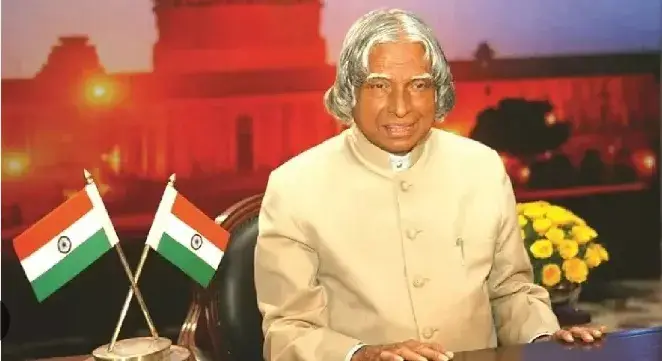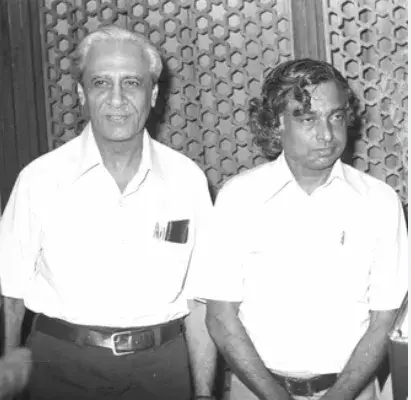The Leadership Lessons from Dr. APJ Abdul Kalam’s Life.

A Tale of Failure, Success, and True Leadership.
When to Look at the Mirror and When to Look at the Window
There’s a beautiful story from the life of Dr. Abdul Kalam, one of India’s most beloved Presidents and a remarkable scientist, that offers a great lesson in leadership.
This story from his early career captures what it truly means to lead with integrity and humility.
The Challenge of Leadership
In the early days of his career as a scientist, Dr. Kalam was given a major responsibility. He was appointed Project Director for a Satellite Launch Vehicle (SLV) program.
This was a monumental task, as the goal was to launch a satellite into orbit — a challenging feat for India then. Dr. Kalam and his dedicated team worked tirelessly, pouring their hearts and minds into the project.
We arrived on the day of the launch. Everything was going according to plan, and hopes were high. But disaster struck as the countdown ended, and the rocket soared into the sky.
The satellite failed to reach orbit and instead plunged into the Bay of Bengal, Indian Ocean. The launch had failed.

The Lesson of Accountability
Dr. Kalam was devastated by this failure. His team had worked so hard, and the result was heartbreaking. The failure wasn’t just technical — it was a public spectacle, with the media present to capture every moment. The pressure was immense.
But in that critical moment, Dr Kalam’s boss, the Chairman of ISRO, Dr Satish Dhawan, demonstrated what authentic leadership looks like.
Calmly and confidently, Dr. Dhawan stepped forward, faced the sea of cameras and microphones, and took full responsibility for the failure. He didn’t blame his team or make excuses.
Instead, he reassured the public that they would work even harder and achieve success soon.
Dr. Kalam watched in awe as his boss shielded the team from blame. In that moment, he learned a powerful lesson about leadership — that a true leader steps up in times of failure and protects the team.

The Triumph of Success
The team did not give up. They went back to work with renewed determination, fueled by the support of Dr. Dhawan’s leadership. Within a year, they tried again.
This time, their efforts paid off, and the satellite successfully reached orbit. It was a moment of immense pride and accomplishment for the entire team.
But when the time came to celebrate their success, Dr. Dhawan did something remarkable once again.
Instead of taking the spotlight, he asked Dr. Kalam to conduct the press conference and share the success with the world.
Dr. Dhawan gave all the credit to Dr. Kalam and his team, turning him into a hero in the eyes of the public.
The Power of Humble Leadership
Dr. Kalam often shared this story as a personal experience and a lesson in leadership that everyone can learn from.
His takeaway was simple yet profound: “Leaders share the credit of success and accept the responsibility of failure.”
This lesson resonates with us in our professional and personal lives. When success comes, a leader should look out the window — towards the team and the people who contributed — and give them the credit they deserve.
But when failure strikes, a leader should look in the mirror, take full responsibility, and shoulder the burden of the failure.
Building Trust and Loyalty
Accepting responsibility, especially in moments of failure, may hurt our ego. It’s tempting to deflect blame or hide behind excuses.
However, true leaders know that by standing firm in difficult times, they build trust and loyalty with their team.
When a leader protects their people, those people become deeply committed to the cause and to the leader’s vision.
It’s not just about winning battles; it’s about winning hearts. Those who stand with us in times of failure will be the same people who help us succeed in our greatest ventures.
They become not just teammates but lifelong supporters.
The Final Lesson: Mirror and Window
Dr. Kalam’s story teaches us one simple yet powerful principle. When your team fails, look at the mirror — reflect on yourself and take responsibility.
When your team succeeds, look out the window — acknowledge the contributions of others and share the glory.
It’s a leadership lesson that transcends the workplace and can be applied to all aspects of life.
True success lies not only in achieving great things but in the way we lead and inspire those around us.
Let us strive to be the kind of leaders who, like Dr. Dhawan, protect their team in times of failure and share their success generously.
In every leadership moment, let us choose the mirror when things go wrong and the window when things go right.




